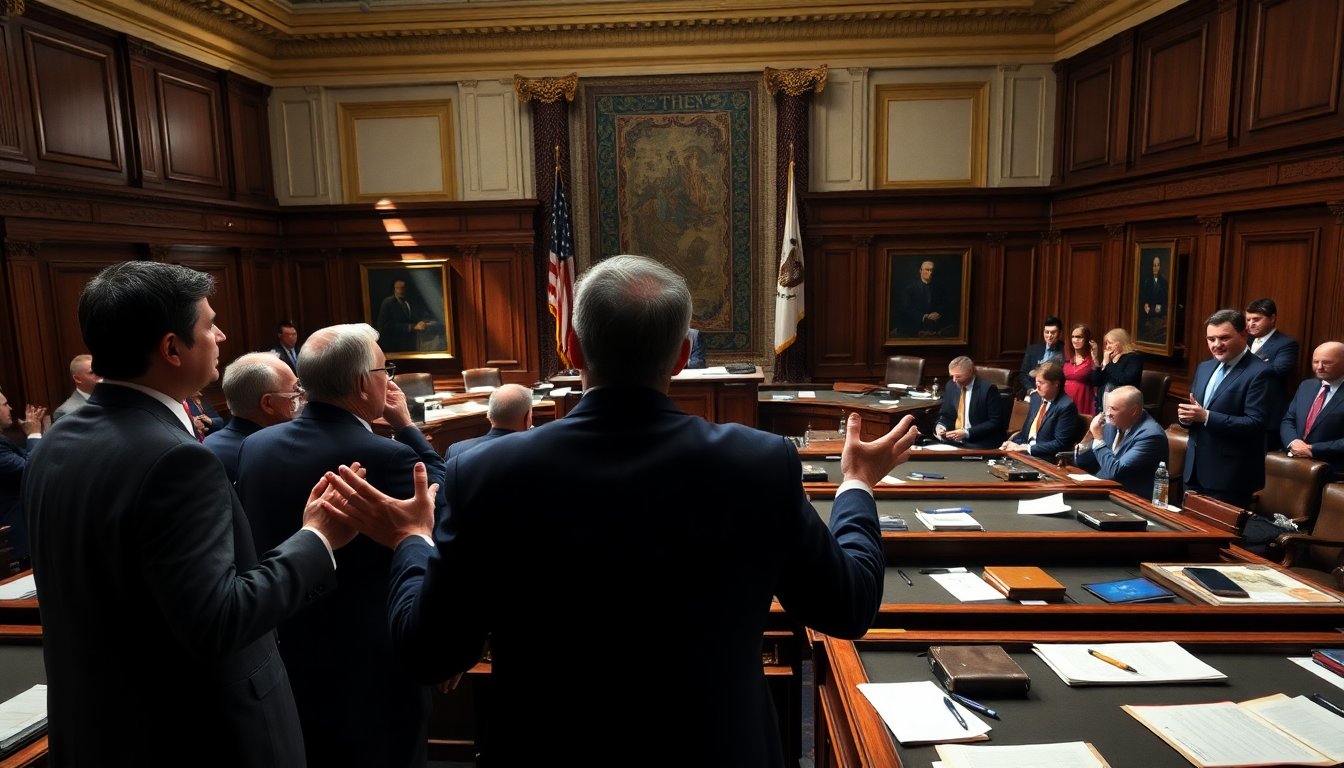Table of Contents
The ongoing government shutdown, now the longest in U.S. history, is nearing a resolution as the House prepares for a crucial vote on a funding bill. After successfully passing through the House Rules Committee, this bipartisan agreement aims to end the 42-day deadlock that has impacted millions of Americans.
Key developments in the legislative process
Transportation Secretary Sean Duffy has expressed concerns about rising risks in air travel, highlighting a surge in runway incursions and loss of separation incidents reported by the Federal Aviation Administration (FAA). As the House prepares for the vote, the implications of this legislation reach beyond politics, directly affecting the safety and well-being of travelers.
House Rules Committee actions
In a late-night session, the House Rules Committee approved the funding bill, receiving unanimous support from Republicans while Democrats opposed it. This bipartisan action marks a significant step in breaking the legislative deadlock, allowing the bill to move forward to the full House for further consideration.
Speaker of the House Mike Johnson (R-La.) expressed confidence in the bill’s passage, anticipating that many Republicans will support the measure. The lengthy committee hearing, lasting over six hours, highlighted the contentious environment, with lawmakers clashing over various amendments, particularly those related to Affordable Care Act healthcare subsidies.
Healthcare and funding implications
During the recent hearing, House Minority Leader Hakeem Jeffries (D-N.Y.) made an unexpected appearance to advocate for an amendment that sought to extend COVID-19-era enhanced subsidies for an additional three years. Despite his efforts, along with those of other Democrats, the proposed amendments were ultimately rejected.
The hearing featured intense exchanges, particularly as some Republicans criticized a provision in the bill that would allow GOP senators to sue the federal government for $500,000. This lawsuit pertains to the unauthorized collection of their phone records during the investigation led by former Special Counsel Jack Smith. Representative Chip Roy (R-Texas) raised concerns about the self-serving nature of this provision and urged for a unified approach to address the matter.
Finalizing the vote
The House is set to hold a final vote that will determine the fate of a crucial bill. If approved, it will advance to the President for signature. Former President Trump has expressed support for the legislation, indicating that a swift government reopening may be imminent.
The Senate previously navigated procedural challenges to pass their version of the bill with a 60-40 vote. This decision received bipartisan backing, including support from eight Democrats. With the House now in the spotlight, the urgency to resolve the government shutdown has escalated due to the increasing disruptions impacting federal services and the economy.
Consequences of the shutdown
The ongoing shutdown is having serious repercussions across multiple sectors, especially in air travel. Reports show that airports are facing significant delays due to staffing shortages among air traffic controllers and TSA personnel, many of whom are working without pay. This situation has resulted in widespread flight cancellations and delays, jeopardizing travel plans for the Thanksgiving holiday.
As the travel chaos continues, the FAA has ordered a reduction in flight schedules. Cancellations are expected to increase by 10% as the deadline approaches. Major airports, particularly in the New York City area, are experiencing considerable delays, with LaGuardia averaging over two-and-a-half hours for departing flights.
Anticipating the holiday travel surge
Transportation Secretary Duffy has warned that travel could decline significantly as Thanksgiving approaches. This situation may prevent many families from reuniting for the holiday. The expected economic impact is considerable, especially as the holiday season is vital for consumer spending.
As lawmakers race to finalize negotiations, resolving the government shutdown is essential. This resolution is crucial not only for the operation of federal services but also for millions of Americans who depend on these services.
The House is poised for a critical vote that could change the trajectory of the current government shutdown. With bipartisan negotiations gaining momentum, there is hope to end this historic stalemate and restore normalcy for federal employees and citizens.


